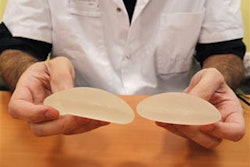SEATTLE (AP) — Japanese whalers have asked a U.S. federal court judge in Seattle to order the Sea Shepherd Conservation Society to stop disrupting its whaling activities in the Southern Ocean surrounding Antarctica.
The Tokyo-based Institute of Cetacean Research and others are seeking a U.S. court order to prevent the anti-whaling Sea Shepherd and its founder from engaging in activities at sea that could harm the crew and damage its vessels.
But U.S. District Court Judge Richard A. Jones has delayed hearing the institute's motion for a preliminary injunction by several weeks, granting a Sea Shepherd request for more time to respond. The judge set a hearing for Feb. 16.
"The violence and attacks from the Sea Shepherd have increased year by year," the institute's spokesman Gavin Carter in Washington, D.C., said Tuesday.
The Japanese companies had hoped to resolve the issue of maritime safety diplomatically, he said, but decided suing was the best course after its last whaling season was cut short by interference from protesters.
Sea Shepherd, based at Friday Harbor in Washington state, dismissed the lawsuit as frivolous and said they are undeterred in their attempt to stop the Japanese whale hunts in the Antarctic.
"The lawsuit is frivolous," Paul Watson, who heads the Sea Shepherd, said in a telephone call on board the vessel Steve Irwin. He said a U.S. court didn't have jurisdiction over the matter.
"We're focused on one thing: putting our ship behind the Maru to block their whaling operations," he said, noting that most of the whale hunt would be over by the time the judge hears the motion for an injunction.
"Any disappointment with the delay with the hearing is offset by the fact that a date has been set," the institute's Carter said. "The institute obviously is pleased that a date has been set and the substance of the case will be heard in February."
Over the weekend, the activists said they intercepted the Japanese whaling fleet after sending an aerial drone to find and photograph one of the vessels about a thousand miles north of the Southern Ocean Whale Sanctuary. The activists said the drone will help it track the vessels over hundreds of miles.
Attorneys for Sea Shepherd said Tuesday they would seek to dismiss the lawsuit.
"We believe that the actions that they filed do not have a basis in law or fact," said Charles Moure, an attorney with the Seattle firm of Harris & Moure representing the Sea Shepherd. "They claim it's for research purpose, but there's no research. The whales are butchered, slaughtered at sea, and the meat is sold as food."
Japan says the hunt is a scientific exemption from an international moratorium on commercial whaling. The government says the research is needed to provide data on whale populations so that the international ban can be re-examined and lifted based on scientific studies.
Opponents say Japan's scientific program is commercial whaling in disguise because surplus meat is sold.
The Sea Shepherd and Japanese whaling fleet have clashed over the years. Last January a Sea Shepherd boat was sunk after its bow was sheared off in a collision with a whaling ship.
According to media reports, Japan's annual whaling fleet left Japan earlier this month with plans to cull 900 whales, mostly minke whales, which are not endangered.


















